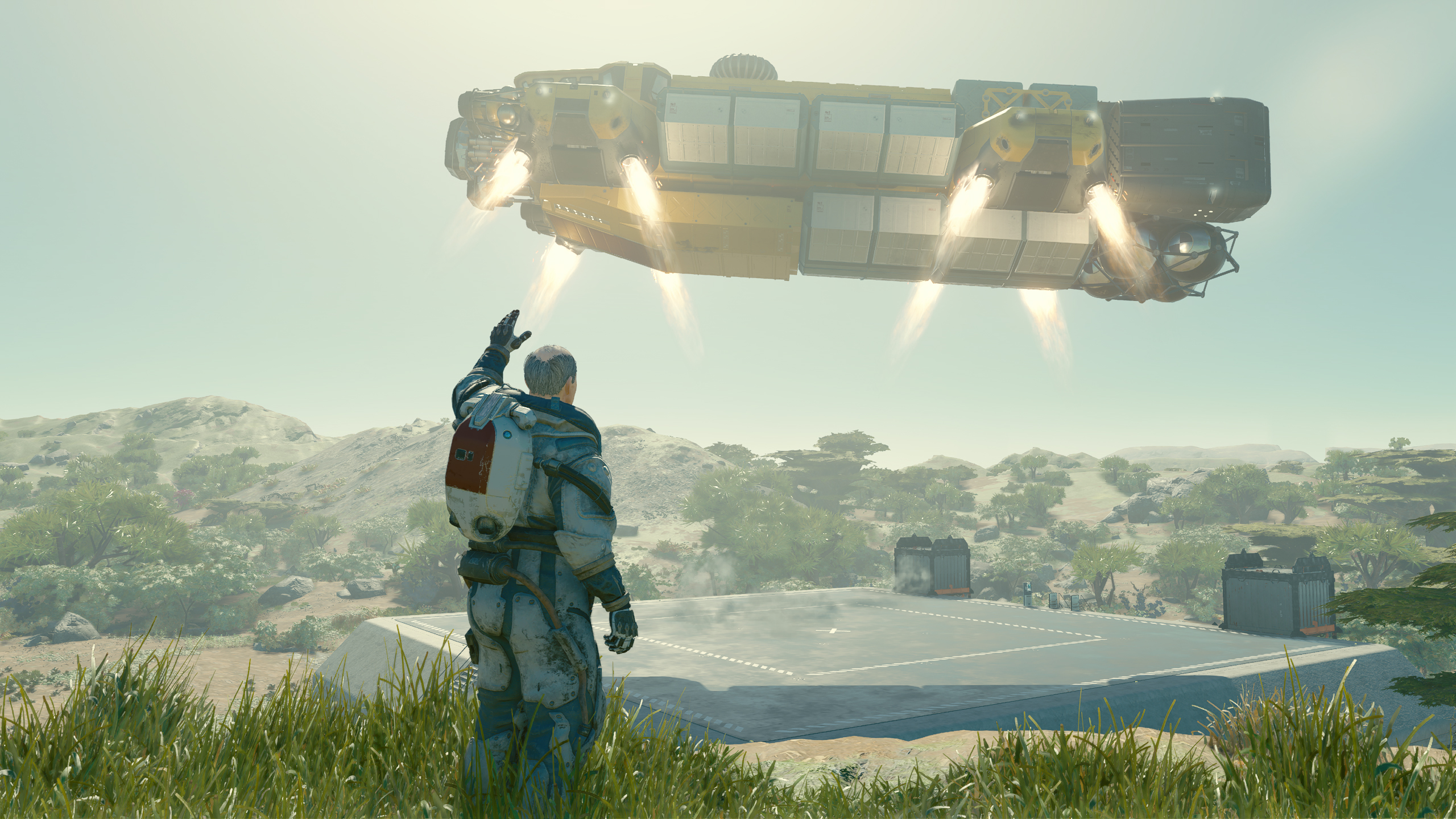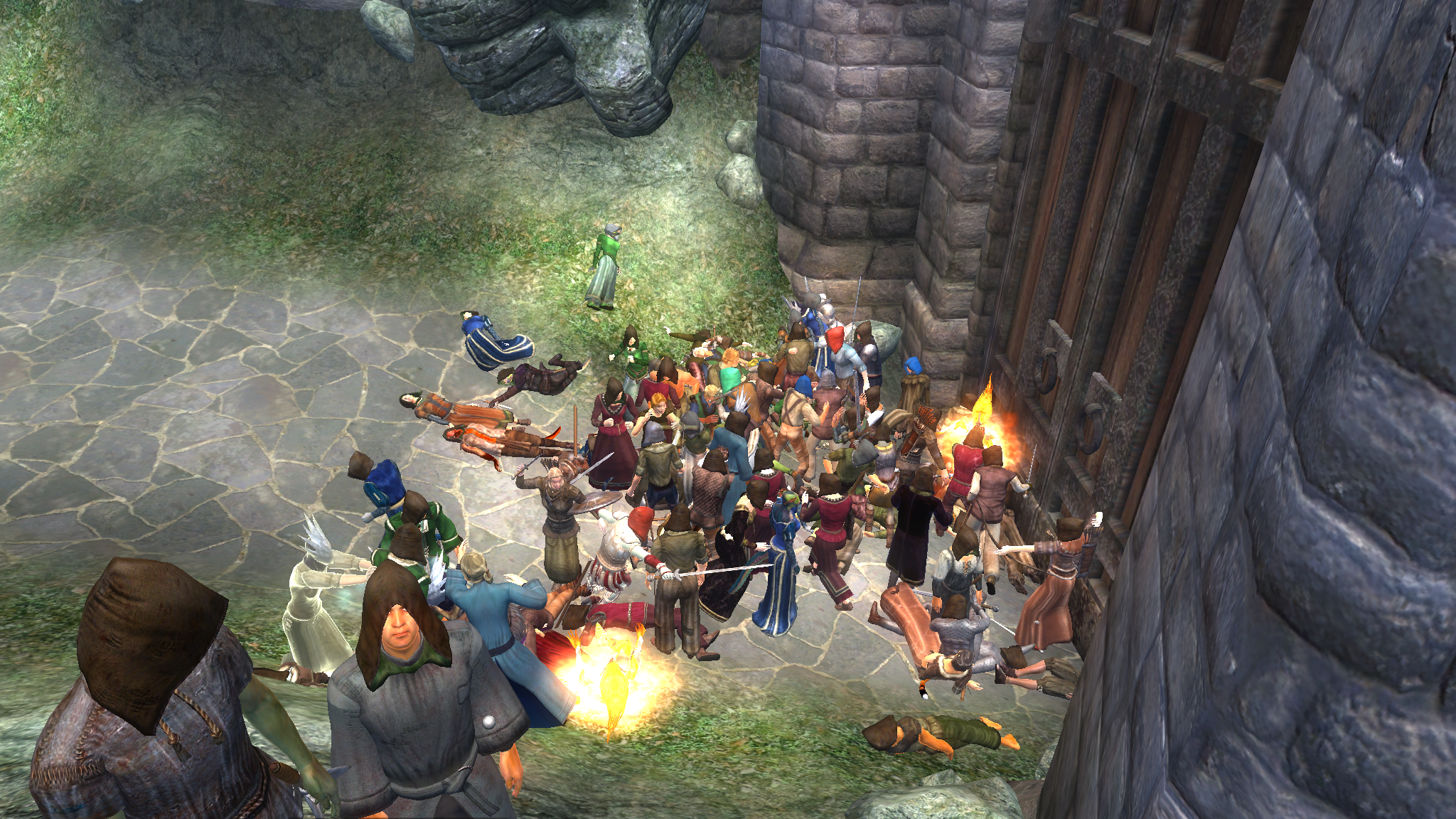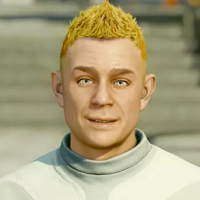Bethesda needs a change after Starfield's middling release, just not the one you're thinking of
Part of my ongoing campaign to turn every videogame into Dwarf Fortress.

I've been a Bethesda fan for decades, by which I mean I consider Morrowind my favourite game of all time and I've gotten progressively crankier about everything released thereafter, so perhaps it's inevitable that the dull thud Starfield made when it released has made me start thinking about the studio, its past, and its future. In short? I think it needs a change. A major one.
But not, perhaps, the change most people of my disposition might usually demand, which is to see if Ken Rolston fancies coming back before luring Michael Kirkbride into a room containing a dragon's hoard of substances and not letting him out until he's rewritten the Bible. You can't go home again, and if we learned anything from Starfield's anodyne plot and forgettable characters, it's that Bethesda just isn't chasing narrative complexity at this point.
It is, however, interested in systems. Bethesda's worlds are (usually) ones in which everyone has a job, a routine, and a bedtime, and even though Starfield jettisoned all that in favour of a panoply of crafting doodads and some No Man's Sky-style inspiration, it's still heavy with unrealised systemic potential in the same way all the company's games are. So here's my pitch: Bethesda, let your games write themselves, because I'm not sure you're all that interested in doing it anymore.
In essence, what I mean by this is to turn these rolling sandboxes into something more akin to Dwarf Fortress, Rimworld, or Crusader Kings. I don't mean "turn them into strategy games," but rather lean into the jank, the weirdness, the haphazard collection of systems that often fail to mesh.
Let Constellation fall apart because Andreja slept in Sarah's bed and everyone got a bit shooty about it. Let major characters fall out because one of them is programmed to love sweet rolls and another is violently allergic. Get a bit State of Decay with it: I want Akila City to collapse into factional conflict because everyone disagreed about whether Pearl Jam rules. If the main quest—if we still have to have one—becomes unbeatable in that time? Que será, será.

Earlier this year, I messed around with an Oblivion mod that arbitrarily placed every single NPC in Cyrodiil into one of a few gangs and then set them all at each other's throats, sparking a province-wide war that would only end when one gang won a climactic final conflict for the Imperial City itself. That, well, probably wouldn't work as the basis for a multi-million dollar first-party Microsoft release, but doesn't it set your mind to wondering?
Bethesda's games have felt at odds with themselves for a while.
What if the studio fleshed out its orphaned and simmy systems a bit more, giving its NPCs likes, dislikes, schedules, desires and impulses? What if those memetic conversations about mudcrabs could actually mean something, maybe devolving into arguments or sparking relationships based on the character of the, uh, characters involved? What if we were trading stories about the latest wild thing that emerged organically from our Starfield playthroughs instead of asking each other which of the side quests is "The Dark Brotherhood one" (meaning the one that's actually worth your while) this time?
Because to me, Bethesda's games have felt at odds with themselves for a while. They're big, narrative-driven RPGs where the narrative is paper-thin, and sprawling clockwork worlds where none of the systems ever really bounce off one another. It's gotta go one way or the other, and frankly I want to see the studio get weird with it. I'm very happy to continue playing inside this ancient, rickety engine if the things it ends up producing are actually interesting. People played Dwarf Fortress with ASCII graphics for literal decades!
Right now, the studio that made my favourite game of all time feels like it's at a creative dead end. Don't get me wrong, I'm not forecasting doom. I don't doubt Bethesda can continue making games along exactly these lines and making more money than god in the process. But I don't think its current trajectory will produce a game that blows anyone's mind in the foreseeable future, certainly not the way it used to. And since we can't go back to 2002, why not reach for the stars?
Starfield guide: Our hub of advice
Starfield traits: The full list, with our top picks
Starfield companions: All your recruitable crew
Starfield romance options: Space dating
Starfield console commands: Every cheat you need
Starfield mods: Space is your sandbox
Keep up to date with the most important stories and the best deals, as picked by the PC Gamer team.

One of Josh's first memories is of playing Quake 2 on the family computer when he was much too young to be doing that, and he's been irreparably game-brained ever since. His writing has been featured in Vice, Fanbyte, and the Financial Times. He'll play pretty much anything, and has written far too much on everything from visual novels to Assassin's Creed. His most profound loves are for CRPGs, immersive sims, and any game whose ambition outstrips its budget. He thinks you're all far too mean about Deus Ex: Invisible War.


